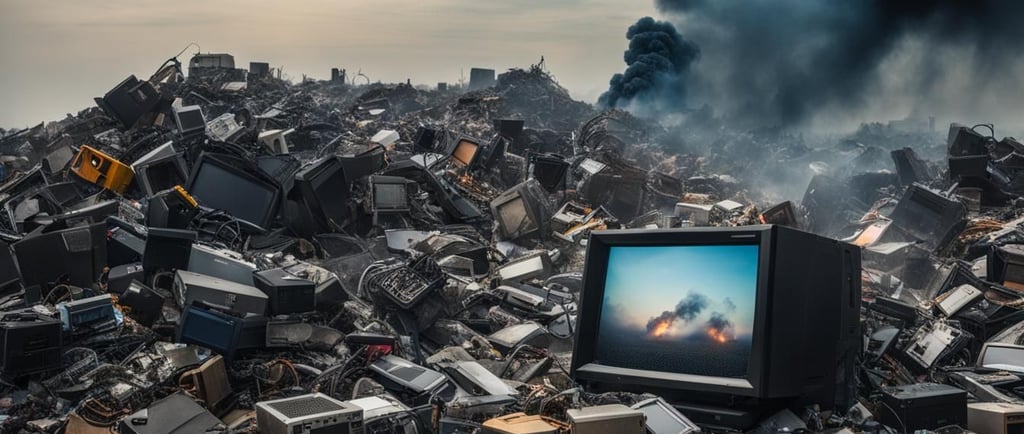The Growing Crisis of E-Waste: Responsible Disposal and the Role of Electronic Recycling in Environmental Sustainability
By Recycle Agent | Illinois E-Waste & Data Destruction Experts
7/1/20252 min read


In today’s fast-paced digital world, technology is evolving faster than ever. With new smartphones, laptops, and gadgets being released each year, our dependency on electronics has grown—so has a major environmental issue: electronic waste, or e-waste.
What Is E-Waste?
E-waste includes discarded electronic devices like computers, televisions, smartphones, printers, and more. These items often contain hazardous materials such as lead, mercury, and cadmium, which can pose serious health and environmental risks if not disposed of properly.
According to the Global E-Waste Monitor, the world generated over 53 million metric tons of e-waste in 2019, and that number is projected to reach 74 million by 2030. Alarmingly, only 17.4% of this waste is formally collected and recycled.
The Environmental Impact of E-Waste
Improper disposal of electronics leads to a host of environmental issues:
Soil and water contamination from toxic substances
Air pollution caused by burning components to extract metals
Loss of valuable resources, including gold, copper, and rare earth elements
Beyond pollution, the manufacturing of electronics demands significant natural resources and energy, making it crucial to recover and reuse materials where possible.
Why Responsible Disposal Matters
Simply throwing away electronics in regular trash bins sends them to landfills, where they break down and release toxins. Responsible e-waste disposal involves either donating usable electronics, properly recycling broken ones, or using certified e-waste recycling facilities.
The Role of Electronic Recycling
Electronic recycling plays a vital role in reducing the environmental burden of e-waste. Here's how:
Prevents pollution by keeping harmful chemicals out of soil and water
Reduces greenhouse gas emissions by conserving raw materials and energy
Supports a circular economy where materials are reused instead of discarded
Creates jobs in the recycling and refurbishment sector
Certified recycling companies ensure electronics are dismantled safely, reusable components are salvaged, and waste is handled in compliance with environmental standards.
What You Can Do
Recycle Responsibly: Use certified e-waste recyclers for old electronics.
Donate or Resell: Give functioning devices a second life.
Buy Sustainably: Choose durable electronics and brands that offer take-back programs.
Educate Others: Spread awareness about the importance of proper disposal.
Final Thoughts
The growing crisis of e-waste is a call to action for consumers, businesses, and governments alike. By adopting responsible disposal habits and supporting electronic recycling initiatives, we can protect our environment, conserve precious resources, and move toward a more sustainable future.
